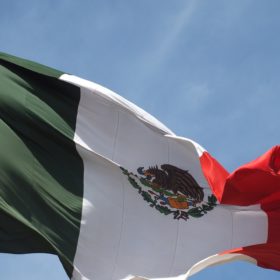Mexico raises grid fee for renewable projects finalized before energy reforms

The new measure mainly applies to wind power and other renewable energy sources, as most of the country’s solar capacity was deployed after 2014, when the energy reforms were implemented.
The Mexican government revealed grid-fee increases last week for renewable energy plants installed under the so-called Contratos Legados regulatory framework, which was in force prior to the energy reforms implemented in 2013.
The Mexican regulator approved the new tariffs at the end of May, but the government still needed to confirm the precise amounts. The fee for installations connected to the low-voltage grid is MXN0.89284 ($0.04)/kWh, while the tariff for plants linked to the medium-voltage network is MXN0.25865, up roughly 400%. For plants that are tied to the high-voltage grid, the fee has been increased to MXN0.27857.
However, the measures only affect a small amount of PV project owners. Most of the country’s installed PV capacity was deployed after the energy reforms were introduced – including both distributed-generation PV and large-scale solar projects.
In early May, Mexico’s National Energy Control Center (CENACE) imposed new restrictions on renewable energy deployment, citing the need to protect energy security during the Covid-19 pandemic. The provisions halted grid connections for new solar and wind power projects until further notice.
A few weeks later, CENACE decided that 23 operators of large-scale renewable plants affected by the measures would be allowed to resume test operations. According to several Mexican media outlets, the 23 companies had filed “amparo” lawsuits against the grid-connection suspension. Amparo lawsuits are an extraordinary measure in the Mexican justice system, with no equivalent in the common law tradition. They are usually filed to request the protection of an individual’s constitutional rights.
On June 12, Mexican President Andrés Manuel López Obrador said that he doe not plan to nationalize the energy sector. However, he reiterated his intention to review contracts awarded in renewable energy auctions that were held after the energy reforms went into force. This plan was first announced by Manuel Bartlett, the general director of state-owned utility CFE, in March, 2019.

